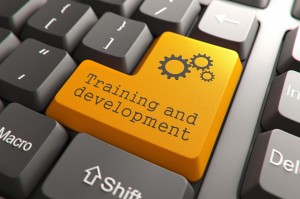Improving the quality of proposal content with a writing model – Part 1
 Proposal managers are frequently faced with the challenge of proposal resources who can’t write well. We are often assigned technical resources with a reputation for poor writing and new resources whose lack of familiarity with proposals is reflected in their content submissions. This creates a lot of extra work for proposal managers to “fix” sections, and the rough content disrupts color reviews. Inevitably, reviewers either can’t resist the urge to redline the document, or they’re so frustrated trying to understand convoluted language that they mentally check out. Neither of these options leads to effective reviews that validate the content or improve the proposal.
Proposal managers are frequently faced with the challenge of proposal resources who can’t write well. We are often assigned technical resources with a reputation for poor writing and new resources whose lack of familiarity with proposals is reflected in their content submissions. This creates a lot of extra work for proposal managers to “fix” sections, and the rough content disrupts color reviews. Inevitably, reviewers either can’t resist the urge to redline the document, or they’re so frustrated trying to understand convoluted language that they mentally check out. Neither of these options leads to effective reviews that validate the content or improve the proposal.
When faced with the challenge of unskilled writers, I’ve seen proposal managers take one or more of the following actions:
- Interview the resource and write the section for themselves
- Pair the writer up with a more experienced writer (often assigned to another section)
- Give the writer boilerplate or prior proposal text to adapt
One option I don’t see proposal managers pursuing is training and education. Education is the best option for return on investment, reducing the burden for other proposal team members, and improving your color review process. After your initial investment to increase the skill level of a proposal resource, you see the benefits on every additional proposal that resource works on. Other team members won’t be burdened by picking up this unskilled writer’s work, and you won’t have to take time interviewing and writing for your resource. Finally, color reviews will be more effective because reviewers won’t be distracted by poor writing. Once your resources provide the reviewers with clean, clear text the reviewers can focus on reviewing the content rather than the form.
Perhaps proposal managers don’t pursue training because they don’t think it’s a feasible option. Training usually requires outside resources and buy-in from the trainee, or the trainer. Further, there’s often the idea that if someone didn’t learn how to write well in high school or college, they won’t learn it for proposals. In contrast with these perspectives, a proposal manager can provide minimal just-in-time training to achieve remarkably improved proposal text. I have put in as little as 2 hours of training – in the form of a lunch-and-learn combined with some individual feedback – and seen considerable improvements in proposal content’s organization, clarity, and content from inexperienced and technical writers alike. This approach required no outside resources or extra funding, and the benefits were realized on several proposals.
Now that you’re (hopefully) convinced that training your reticent writers is beneficial and feasible, tune back in for the next parts of this series where I’ll cover what to teach your writers and how you can institutionalize these methods in your proposal teams.
Paperback or Kindle
10 steps to creating high-scoring proposals
by Bob Lohfeld
contributors Edited by Beth Wingate
Subscribe to our free ebrief
Teaming friends, frenemies, and enemies—12 tips to mitigate harmful effects
Did you know that contracting officers spend up to 20% of their time mitigating disputes between teaming partners? In an informal poll we conducted on LinkedIn last month, 40% of respondents classified their teaming partners as “frenemies” on their last bid.
Explore Further
- Advice (445)
- AI (5)
- APMP (17)
- Business Development (197)
- Capture Management (196)
- Favorite Books (5)
- Go-to-Market (27)
- Graphics (6)
- Lohfeld Books (3)
- Past Performance (58)
- Post-submission Phase (15)
- Pre-RFP Preparation (210)
- Proposal Management (269)
- Proposal Production (60)
- Proposal Reviews (27)
- Proposal Writing (77)
- Pursuit Phase (89)
- Research Report (2)
- Resources (60)
- Tools & Tips (258)
- Training (10)
- Uncategorized (220)

Sign Up for INSIGHTS and Download your FREE book
We'd love to help you with your proposals. Enjoy our complimentary Lohfeld Consulting Group Capture & Proposal Insights & Tips book with your FREE subscription to our Insights Newsletter.
GET YOUR FREE BOOK




